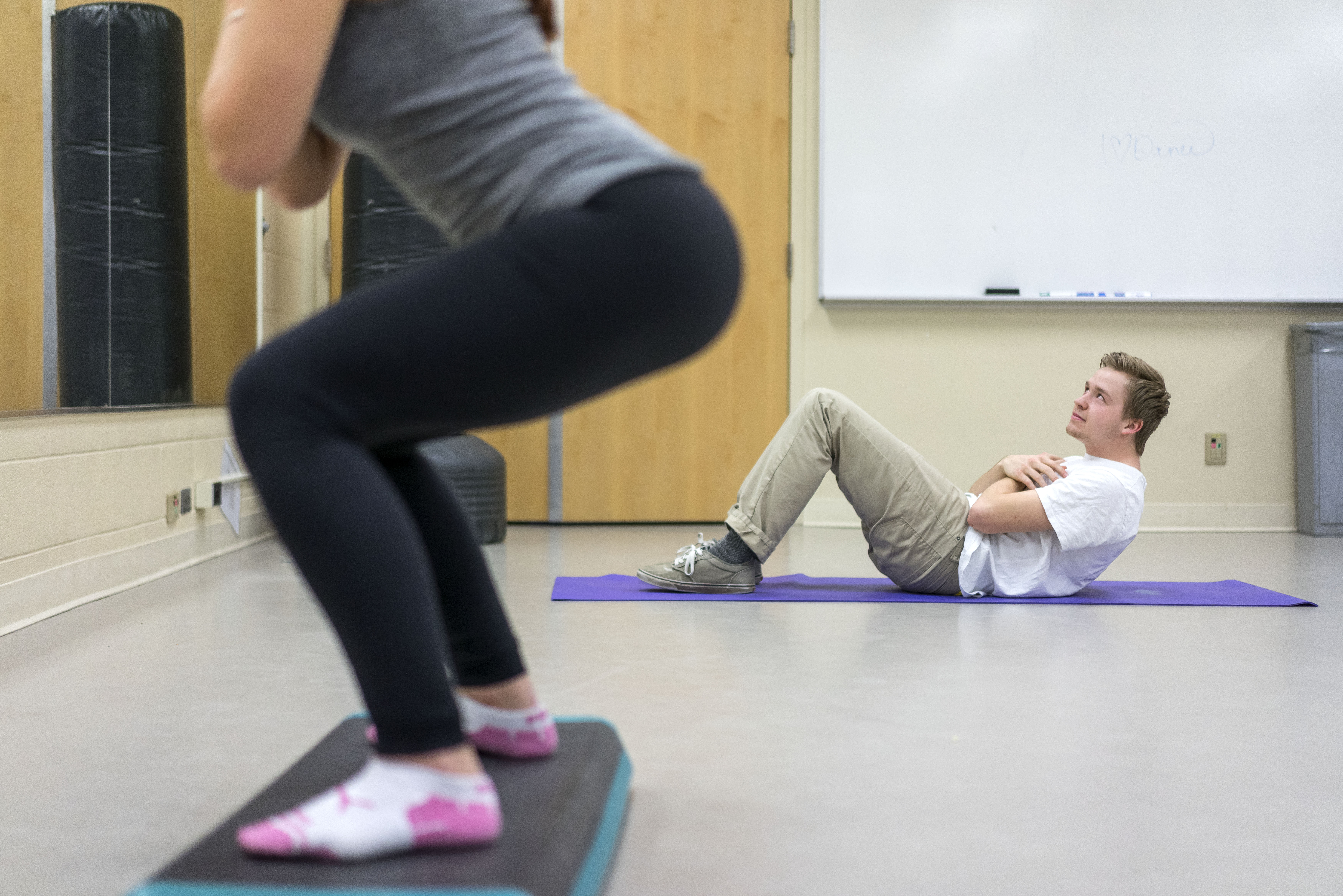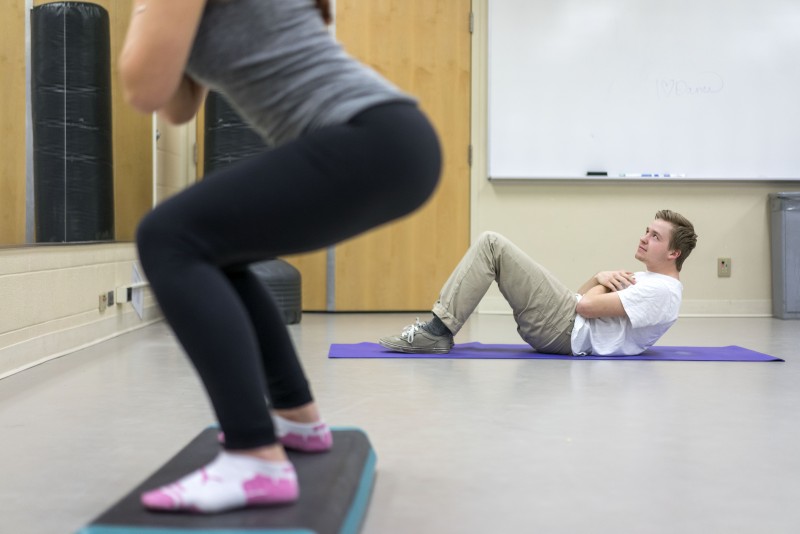Working out gender


There’s a lot to observe in the gym. You’ve got machines, ropes, mats, blocks, skipping ropes, treadmills, bikes, t-shirts, TVs, headbands and water bottles. Not to mention all the sweaty human beings performing high intensity activities.
Despite the visual feast, I stood in front of the Wilfrid Laurier University gym mirror, two weights in my hand, staring at the same face I’d seen a million times.
While I received a modicum of entertainment in the way my nose would scrunch up every time I struggled on my last rep, I ultimately wanted to look around. Not at anyone or anything in particular, I just wanted to take in the scene. That’s just the type of dude I am.
Yet, as if I was sitting in a barber’s chair, looking around seemed like it would be a costly mistake and an annoyance to those around me. I felt that way specifically about the women working out on the mats right in front of me.
I became self-conscious about my perceived appearance. If they made eye contact at the wrong time, I would be labelled as a creep trying to sneak a peak of ass. On the other end, I genuinely didn’t want them to feel uncomfortable. So despite my curious nature, I made it obvious that my own face and body were the only thing my eyes were looking at.
When looking at the gym as a location for self-improvement, desired privacy makes sense.
The point is to repetitively exhaust oneself in order to come back stronger. We voluntarily place ourselves in vulnerable positions, placing our trust in the knowledge that our suffering will have long-term benefits.
The short-term images are uninspiring and we’d rather leave that for our own eyes.
Yet, uncomfortable feelings while working out are not entirely rooted in the issue of self-improvement.
The gym is also a revealing microcosm for the current state of gender relations.
For the majority of history, physical exercise was discouraged for women. Athleticism and physical well-being were solely for the men. As a woman, wearing athletic wear and breaking a sweat in public was a taboo.
Ideas that have been fostered over generations are not easily dispensed. It’s completely understandable that for many women, the male gaze remains more uncomfortable then any weight they’re trying to pick up.
“Women-only hours” at the Laurier gym seem to cater to the issue. It gives women a space that solely belongs to them, a space restricted from men.
One could make the argument that after generations of being treated as inferior, making a sacrifice — albeit a small one — of gym space, is the least we can do for women.
Yet, is this the route to gender equality? Or is there something backwards about using separation to encourage inclusion?
The notion of vulnerability as a necessary step to long-term improvement in fitness can be applied to the current state of gender relations.
Staring at myself in the Laurier gym mirror wasn’t so much about consideration; it was about fear. The fear of being uncomfortable.
My first reaction was to revert back to a comfortable space. The first move was focusing on my own face, one that I had seen a million times and one that I’m comfortable with.
Mentally, my brain retreated back to an old stereotype constructed by all the TV, books and conversations that molded me. One that thought of men as slaves to our primal desires to constantly sexualize women. Thinking that women are constantly in a state of feeling threatened and victimized around men.
Yet, when adversity hits, we have a troubling tendency to revert back to the flawed notions of gender, simply because that was just the status quo of previous generations. We receive comfort in constructing categorizations for complex concepts.
How do we get over that tendency? Repetition.
You didn’t know the proper way to squat the first time you tried. Someone had to teach you those things.
We’re fortunate to grow alongside many different genders.
We’ve had the benefit of understanding.
Let’s not constantly separate ourselves because it’s comfortable. Keep an eye on the long-term and have faith that we’ll be able to work it out.


